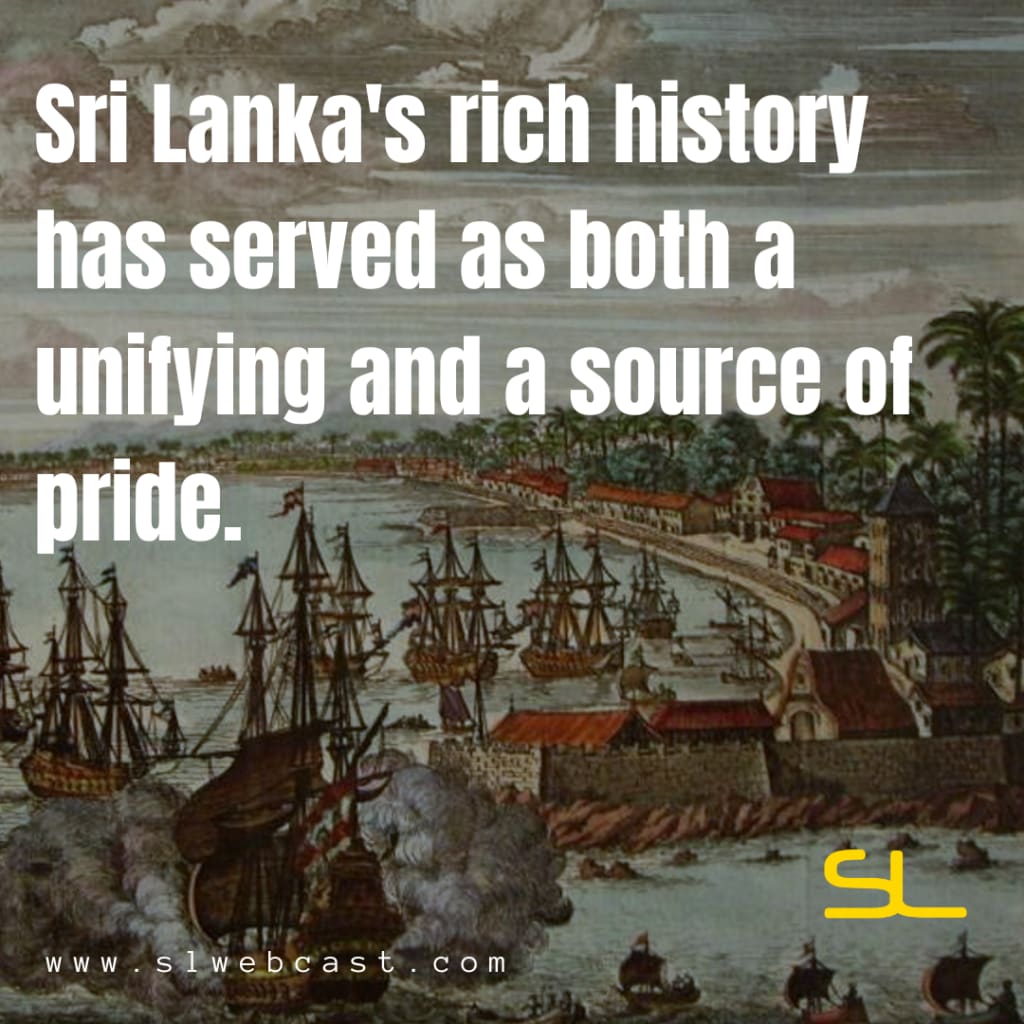Every year on February 4th, Sri Lanka celebrates Independence Day, which commemorates a pivotal period in the country’s history. Visionary leaders’ unwavering efforts and a plethora of socio-political circumstances moulded the long and difficult route toward independence.
When the Portuguese landed on Sri Lanka’s coast in the sixteenth century, the country began to experience colonial rule. The Dutch and British established themselves as well in the ensuing centuries; the latter took over in 1815. The island’s social, political, and economic landscapes were profoundly impacted by the British colonial era.

Globally, nationalist sentiments surged in the early 20th century, and Sri Lanka was no exception. Charming leaders like D.S. Senanayake and S.W.R.D. Bandaranaike, among others, provided impetus for the growing demand for independence and self-governance. The fight for independence was a social and cultural awakening as much as a political movement that aimed to recover and protect Sri Lanka’s distinctive cultural legacy.
The official acquisition of sovereignty by the island country on February 4, 1948, marked a turning point in Sri Lanka’s path towards independence. A period of self-determination and national pride was ushered in for Sri Lanka with the end of colonial control. But the accomplishment wasn’t without its difficulties, as the country had to deal with problems related to unification, economic development, and government.

Following independence, the authorities of Sri Lanka faced the formidable task of nation-building. They intended to provide the island’s diverse ethnic and religious communities with a shared identity. In particular, the Sinhalese majority and the Tamil minority emerged as key players in shaping the destiny of the country.
In the decades that followed, Sri Lanka had both successes and failures in its efforts to forge a unified national identity. Ethnic tensions and community bonds were strained when measures favouring the Sinhala majority were introduced, such as the Sinhala Only Act in 1956. Feeling left out, the Tamil community started to demand autonomy, which gave rise to the Tamil Tigers and started a protracted civil war.
The stability and unity of the country were seriously threatened by the nearly three-decade-long Sri Lankan Civil War. Fuelled by disparities in language, ethnicity, and religion, the battle caused great misery to people and severe economic hardship. Although the Tamil Tigers’ eventual 2009 defeat was a turning point, the conflict’s aftereffects persisted, necessitating a concentrated effort towards healing and reconciliation.

Sri Lanka has made progress in restoring and promoting national unity in recent years. There have been initiatives to guarantee equal development, foster inclusivity, and address the problems of various populations. The island nation has also worked to build stronger diplomatic and commercial relationships with other countries, which support its stability and economic growth.
Regarding culture, Sri Lanka’s rich history has served as both a unifying and a source of pride. Independence Day is an opportunity to highlight the rich cultural diversity of the country as well as to honor political freedom. Sri Lankan customs are showcased through traditional ceremonies, parades, and cultural events, which cultivate a shared sense of identity and pride among the populace.
Upon reflection of its post-independence journey, Sri Lanka continues to encounter both opportunities and challenges. Social cohesion, environmental sustainability, and economic development continue to be top goals. The trajectory of the country in the coming years will be determined by its capacity to resolve these problems while maintaining democratic principles and encouraging inclusivity.

Sri Lanka’s declaration of independence on February 4, 1948, was a watershed in the country’s history and brought with it a host of benefits that have influenced its course. Sovereignty has benefits that go beyond politics and include social, cultural, and economic aspects that contribute to a distinct story of development and resiliency.
After gaining independence, Sri Lanka was able to determine its political course. The country could create its laws, regulations, and governance systems as it was no longer ruled by foreign forces, which promoted a feeling of self-determination.
Sri Lanka was able to commemorate and recover its rich cultural legacy after gaining independence. The people of the country took pleasure in its many traditions, dialects, and practices, which became essential to their identity. Independence Day customs and cultural activities serve as a vivid reminder of this shared identity.
The process of gaining independence required the creation of a national identity that cut beyond racial, linguistic, and religious divides. The goal of unification has served as a compass even while difficulties continue. The basis for promoting social harmony, inclusion, and understanding across varied communities is independence.
International trade and economic growth were made possible by sovereignty. Sri Lanka could choose its economic policies, participate in international trade agreements, and draw in outside capital. The capacity to steer a separate economic route aided in the expansion and advancement of the country.
Independence gave rise to the chance to create educational policies that were suited to the requirements of the country. By improving literacy and knowledge sharing, Sri Lanka might expand its educational system and provide the foundation for an educated and capable populace.
Sri Lanka was able to handle international events according to its interests because it was able to conduct independent foreign relations. The country was able to increase its voice on the worldwide scene by establishing diplomatic relations, taking part in international organizations, and participating in global conversations.
Sri Lankans now have the freedom to take part in democratic processes thanks to independence. The nation’s governance was founded on the protection of individual rights and the development of democratic institutions. Sri Lanka has been steadfast in its adherence to democratic principles over time.
Sri Lanka was able to properly handle crises thanks to the autonomy that came with independence. The capacity to act quickly and autonomously to mobilize resources in the face of natural disasters or domestic difficulties has bolstered the country’s resilience during difficult times.
The heritage of freedom and patriotism ingrained in succeeding generations is arguably the greatest benefit. Every year, Independence Day acts as a reminder of the costs incurred maintain sovereignty and the obligations that accompany it, encouraging a feeling of pride and dedication to the future of the country.
Sri Lanka’s Independence Day is a significant event that encourages contemplation of the country’s past, present, and future. Sri Lanka has been resilient and determined throughout its history, from the colonial era to the difficulties faced in developing a post-independence society. The island nation must embrace the diversity that makes up its people and draw from its rich cultural history as it looks to the future. The lessons learned from the past and the hopes of future generations continue to steer the path toward a united and prosperous Sri Lanka.


